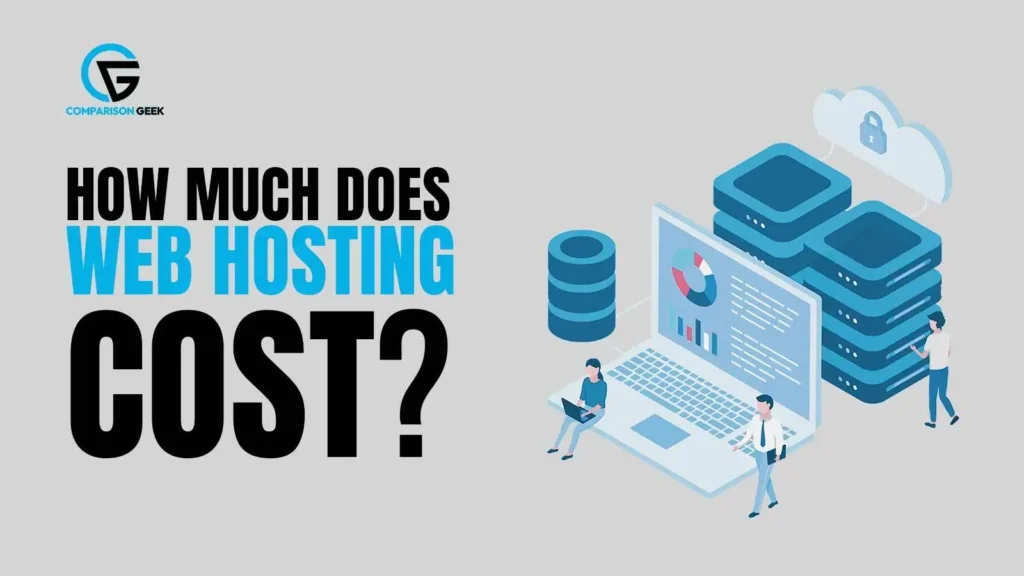Nowadays, the world is moving towards digitalization. From shopping to making bank transactions, everything is done online. That’s where businesses emphasize, creating a platform where they can easily provide their products and services online to their customers/ users.
The first and foremost step to creating a website is to choose a suitable web hosting service provider. You might have a quick question, how much would a web hosting cost? Well, it depends on many factors that collectively determine the cost of your web hosting.
This article will take you through the important factors that affect your web hosting and help you choose the right fit depending on those factors and your requirements.
Table of Contents
ToggleFACTORS AFFECTING WEB HOSTING COSTS
1. TYPES OF HOSTING
It’s the most important factor that highly impacts your web hosting costs. Types of web hosting have several options available.
- Shared hosting: if you have a small business or medium-sized company, shared hosting might be a suitable option for you. It’s the most affordable among all types and typically ranges from $2 to $10 a month. Shared hosting lets multiple websites share resources on a single server.
- VPS hosting: it stands for Virtual Private Servers (VPS). If you need more controllability and privacy over your website, VPS hosting can be a good hosting for it. The pricing options typically range from $10 to $50 a month for VPS hosting.
- Dedicated hosting: as the name suggests, the server of this web hosting is dedicated to a single website only. Websites having great traffic volumes should consider dedicated hosting for their server. It’s a more expensive option and typically ranges from $50 to hundreds of Dollars a month.
2. RESOURCE ALLOCATION
As a business owner, freelancer, or any other professional, your website will need a lot of different types of resources. It includes storage, bandwidth, CPU power, RAM, etc.
Every web hosting provider has varying levels of resource allocation it offers. The higher your website’s resources, the higher the cost it will have.
3. ADD-ON SERVICES
Add-on services mean additional services you get from a hosting provider. They often include SSL certificates, domain registration, automated backups, website builders, and enhanced security measures. These features provide additional benefits for your website, but it also increases the cost of your hosting charges.
4. CONTRACT LENGTH AND BILLING CYCLE
Contract length means that for how long you are purchasing a web hosting service. It often comes with monthly or annual plans and you can choose any of the plans based on your budget and requirements.
Web hosting providers often offer discounts for longer contract lengths (e.g., annual plans vs. monthly plans). Prices may be significantly lower when paid upfront for a longer period.
5. PROVIDER REPUTATION AND SUPPORT
Big-name hosting providers might cost a bit more, but that extra money often goes towards two important things:
- Excellent customer support.
- Super reliable service.
Let’s say your website goes down suddenly, and you want to know if you can get help quickly. With a reliable provider, you’ll have access to top-notch customer support that can troubleshoot any problems and get your website back up and running in no time. So, while a budget option might be tempting, the peace of mind and quick fixes that come with a trusted provider can be worth the extra penny.
ADDITIONAL CONSIDERATION YOU SHOULD KEEP IN MIND WHILE DETERMINING WEB HOSTING COSTS
Some additional factors might affect your web hosting costs, so it’s better to know about them beforehand.
1. RENEWAL COSTS
When you purchase a web hosting service initially, that price is often the introductory one and is for one-time use. It means if you want to renew the hosting, it would cost you additional charges.
2. SCALABILITY
Consider you have purchased a medium cost (neither too expensive nor too reasonable). Let’s say it is for your small business or a personal blog. Once your site grows, you might need your hosting plan to accommodate increased traffic and resource demands. Factor in potential scalability costs when choosing a hosting provider.
3. SPECIALIZED HOSTING
Certain types of websites, such as WordPress sites, e-commerce platforms, or high-traffic blogs, may benefit from specialized hosting solutions optimized for their specific needs. These solutions can be more expensive but offer specialized performance and support.
CHOOSING THE RIGHT HOSTING PLAN
To be more specific, it is recommended to consider the below-mentioned factors for an improved understanding of how much your web hosting cost can be:
- Your website’s current needs.
- Anticipated growth.
- Budget constraints.
- The level of technical expertise required.
It’s advisable to compare multiple hosting providers based on their offerings, customer reviews, uptime guarantees, and overall value for money.
CONCLUSION
The cost of web hosting varies widely based on factors like the type of hosting, resource allocations, additional services, and provider reputation. Every factor influences your choice in its own way. Such as shared hosting can be as affordable as a few dollars per month, and dedicated hosting can run into hundreds of dollars monthly. It’s better to fully understand your website’s requirements. Researching different hosting options will help you choose a plan that meets your needs without overspending. By considering these factors carefully, you can find a hosting solution that strikes the right balance between cost, performance, and reliability for your online presence.


